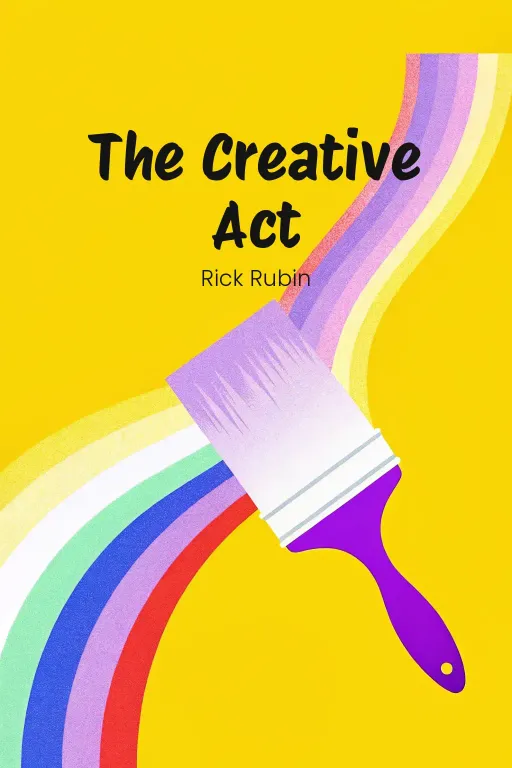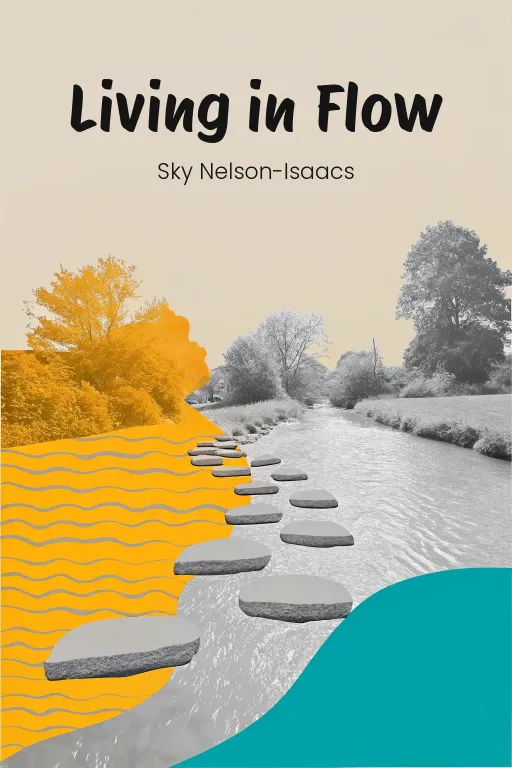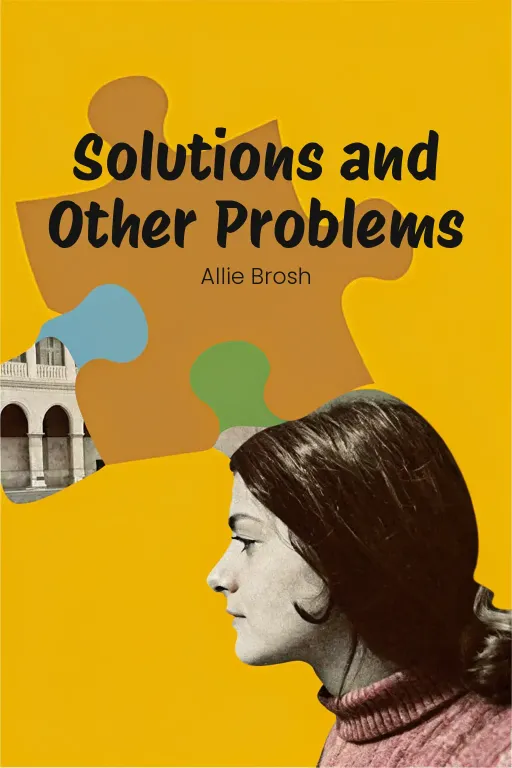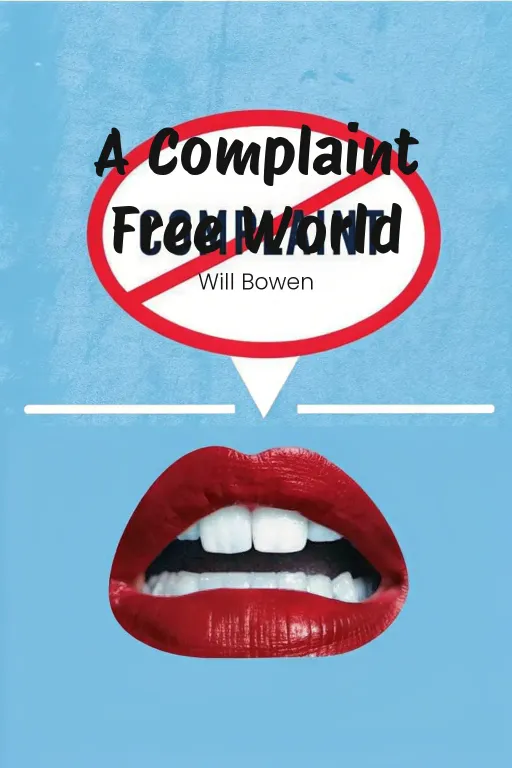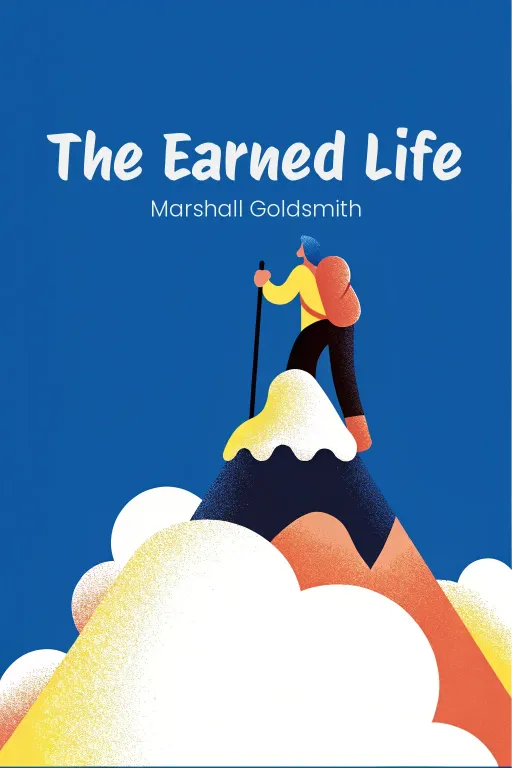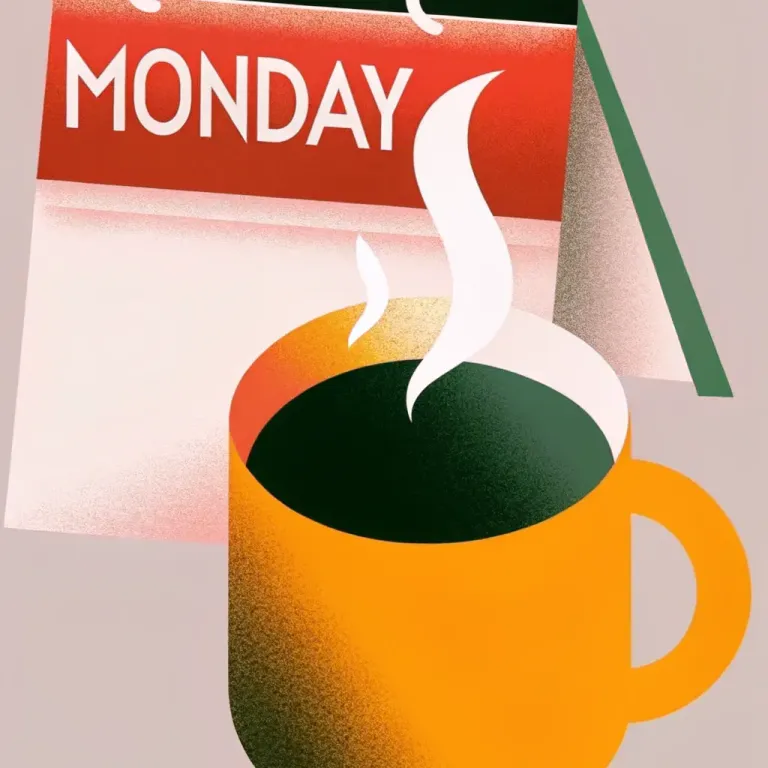
Monday Makeover: Your Life's Blueprint
Podcast by Beta You with Alex and Michelle
How to Kick Your Week Off with Passion, Purpose, and Positivity
Introduction
Part 1
Alex: Hey everyone, welcome to the podcast! So, to kick things off, how do you “really” feel about Mondays? Love 'em, hate 'em, or somewhere in between? Michelle: Okay, Alex, let me guess. You're about to tell us that Mondays are secretly amazing, right? I'm naturally skeptical, but I'm also listening. 😊 Alex: <Laughs> Michelle, maybe! But what if I told you that Mondays could actually, like, change your life? Even make the world a better place? That's the core concept behind Matthew Emerzian's book, “Every Monday Matters”. It's basically a guide to living with purpose, being more aware of yourself, and finding ways to give back. Each week, there are challenges to help you grow emotionally, practice kindness, and build connections—all creating a ripple effect of good stuff in your life and your community. Michelle: Whoa, hold on. So, it's not just about surviving until Friday, but, like, actually using Mondays? Okay, color me intrigued. What's the big idea he's pushing? Alex: Simply put, it's a blueprint for personal and collective transformation. Emerzian breaks down themes and actions for each week designed to make you more self-aware, strengthen your relationships, and get you actively involved in your community. It's full of journaling prompts and exercises to help you figure out what “really” matters to you. Michelle: Alright, ambitious! Where do we even begin with a book like this? What’s our plan of attack for today’s podcast? Alex: Great question! Today, we're going to unpack three key areas from the book. First, we'll explore how building self-awareness and emotional resilience gives you a strong foundation for growth. Then, we'll dive into how fostering positivity and creativity can spark joy and hope in your life. And finally, we'll look at how nurturing relationships and being socially responsible can create real, lasting change. Think of it like planting a garden, right? You start with the soil of self-discovery, you water it with positivity, and you watch it bloom into a connected community. Michelle: A garden metaphor, huh? I can already see you assigning me homework to "plant seeds of kindness." <Laughs> But, hey, I’m open-minded. Let's see where this goes!
Building Self-Awareness and Emotional Resilience
Part 2
Alex: Okay, Michelle, let's dive into the first layer: building self-awareness and emotional resilience. This is, like, the bedrock, right? The inner work that everything else is built on. Before you can even think about improving relationships or communities, you've got to know yourself, your values, and how to handle the inevitable rollercoaster of life. Michelle: Yeah, that’s logical enough. If I can't even handle my frustration when someone cuts in line, I'm probably not ready to tackle world peace. But "building self-awareness"? That sounds like a lot of navel-gazing. Where do you even start? Alex: Well, Emerzian suggests starting with introspection – exploring what truly brings you joy, figuring out your “real” priorities, and seeing if your life actually lines up with your core values. It's about tuning out all the noise of what society expects and asking yourself those critical, and sometimes uncomfortable, questions. Michelle: Okay, but how do you get beyond the surface level? What stops this from being just another pointless "Where do you see yourself in five years?" kind of thing? Alex: That’s a great point! It takes courage and focus. Like, take Sarah, for example. From the outside, she had it all together – a successful corporate job, recognition, financial security. But deep down, she felt empty. It wasn't until she started journaling, really asking herself, "What actually makes me happy?" that she realized her passion was creative writing, not climbing the corporate ladder. That realization shifted her priorities and reconnected her with what truly fulfilled her. Michelle: So, basically, Sarah had to strip away everything she thought she should be doing to find out what she actually wanted to do? That sounds...terrifying, actually. Doesn’t digging that deep risk, you know, pulling the rug out from under everything you’ve built? Alex: Absolutely, and that’s why it can be tough. But it's also why it's so transformative. Introspection isn’t about destroying everything; it's about peeling back the layers to reveal your truth. Journaling is a really tangible way to start. As Sarah documented her feelings and patterns, she saw how far her daily life was from what brought her joy. Writing gives you a space to sift through your thoughts and see things more clearly. Michelle: Okay, journaling – let’s talk about that. Do I need a fancy notebook and a quill pen, or can I just type it out on my phone between meetings? Alex: <Laughs> Whatever works for you! It's not about the aesthetics; it's about the practice. Emerzian emphasizes writing without judgment – just letting it flow. Even a few minutes each day can lead to some surprising insights. Michelle: Hmm, alright, I’ll give it a go. But self-awareness is one thing; dealing with, like, actual emotions—stress, frustration—that's a whole different beast. Where does emotional resilience fit in? Alex: Perfect segue! Emotional resilience really starts with understanding and accepting your emotions instead of running from them. Emerzian gives a really relatable example: Michael, a super stressed-out teacher, started doing daily emotional check-ins. He'd spend, like, five minutes each evening naming and reflecting on his feelings—gratitude, frustration, joy, whatever came up. By just acknowledging them, he normalized them, which kind of reduced their power over him. Michelle: So, the idea is to name it to tame it? Sounds a bit like something you’d hear in a mindfulness seminar. Alex: Exactly. Naming your emotions takes them out of the abstract and makes them more tangible. It's like, you know, pinpointing where a buzzing sound is coming from instead of just panicking about it. From there, you can start seeing patterns and triggers, which allows you to then take action, whether that's doing a breathing exercise or finally reaching out for help. Michelle: Right, but what about moving beyond those emotions? I mean, it’s great to, like, acknowledge frustration, but how do you turn it into something useful? Not everyone wants to just sit with their feelings, you know? Alex: That’s where resilience really shines. Reframing is a super powerful tool here. Take Michael again—his frustration with those overcrowded classrooms became his motivation to actually advocate for change. Resilience isn’t about just ignoring your emotions; it’s about using them for growth. It’s about seeing adversity as a potential catalyst for positive action. Michelle: So, you’re saying frustration or failure isn’t the enemy – it’s, like, an untapped resource? Now that’s a reframe I can get behind. Do you have an example of someone bouncing back and actually turning things around? Alex: Definitely. Anna, for example, was an entrepreneur who really struggled early on with her startup. Instead of giving up, she actively sought feedback, just asking customers what wasn’t working. That feedback highlighted areas for improvement—like faster customer service response times—which she then fixed. Over time, her business thrived, and she emerged more resilient, realizing that setbacks could actually be stepping stones. Michelle: That’s bold. I mean, asking for honest feedback feels a lot like inviting people to tell you everything you’re doing wrong. Alex: It is, but it’s also one of the fastest ways to actually learn and grow. Feedback is like holding up a mirror; it helps you see those blind spots you'd never notice yourself. Emerzian describes it as an "intimidating but indispensable" tool. You can start small—ask a trusted colleague for some honest input or just set up an anonymous questionnaire. It doesn't have to be a Spanish Inquisition! Michelle: Okay, I see the point. But let’s shift gears a bit—resilience isn’t always about feedback or changing your perspective. What about that mindfulness thing you mentioned? Alex: Mindfulness is all about staying present, which is super important in our constantly distracted world. Think of James, an IT guy who's always swamped with deadlines. He started adding one-minute deep-breathing pauses to his day to help him stay grounded. That little tweak helped him stay calm and focused, even when things got really stressful. Michelle: Breathing exercises – classic stress management. But, honestly, can mindfulness “really” make a significant difference beyond just those quick fixes, like deep breathing? Alex: Absolutely, it can! Mindfulness actually extends to how you interact with the world, like really noticing the details during a walk instead of just tuning out. It cultivates gratitude and reflection, which strengthens resilience over time. Small practices like these can recalibrate your perspective and prevent overstimulation from completely derailing your inner peace. Michelle: Okay, I think I’m connecting the dots here. Self-awareness helps you understand who you are, emotional resilience helps you handle life's punches, and mindfulness keeps you grounded in the chaos. Add a little journaling to the mix, and maybe Mondays aren’t completely doomed after all.
Fostering Positivity and Creativity
Part 3
Alex: So, with that solid foundation of self-awareness, we can now explore how to channel this understanding into fostering positivity and creativity. So, Alex, how do we take that inner work and start making the world—or at least, our corner of it—a little brighter? Michelle: That's a great question, Michelle. Building on self-awareness, this is where we shift focus to external expressions of joy and creativity, right? It’s about engaging in acts that not only bring happiness to ourselves but also ripple out to our relationships and communities. Think of it as an invitation to play, laugh, create, and connect in ways that energize us and foster deeper bonds. Alex: Okay, external expressions of joy... That sounds a bit broad, doesn't it? Are we talking about, you know, buying balloons for everyone in the office, or is there more to it than that? Michelle: Oh, there’s definitely more to it than that! Let’s start with something simple but profound: play. As adults, we often forget how liberating it is to engage in activities purely for the sake of fun. Emerzian talks about how play can reignite creativity and relieve stress. Alex: Play, huh? I mean, sure, I’ll join a kickball league if someone drags me there, but what does "play" actually “do” for us? Isn’t it just a break from the grind, really? Michelle: Well, it’s more than that, actually. Play stimulates creativity, nurtures emotional resilience, and fosters social connection. Take Ethan, a marketing professional who felt burnt out after years of focusing solely on his career. He decided to revisit roller skating, something he loved as a kid. At first, it was more awkward than inspiring, but over time, those skating sessions became his weekly escape. He’d laugh at himself, get moving, and reconnect with a part of himself that had been dormant. And the kicker? It actually boosted his creativity at work! He started approaching problems with fresh eyes and more enthusiasm. Alex: So, breaking out the roller skates is basically a master class in creativity? Who knew! But I see what you’re saying – engaging in play does loosen up that mental rigidity. Maybe I’ll finally build that Lego set gathering dust in my closet. What’s another example of fostering positivity? Surely it’s not all fun and games. Michelle: True, but humor plays a big role here, too. Emerzian dedicates a section to the power of laughter, and it’s not just a cliché. Laughter has this incredible ability to unite people and reduce stress. The science behind it is fascinating—when we laugh, stress hormones drop, feel-good endorphins increase, and we naturally feel closer to the people we share those moments with. Alex: Alright, laughter is good for bonding and stress. But let’s be honest – how “do” you make room for that in, I don’t know, the middle of a stressful workday or during a tough time in life? Michelle: Good question! Consider Olivia, a nurse who worked long, grueling shifts during the pandemic. To cope with the weight of her job, she devised what she called “laughter nights” with her family. They’d sit around sharing funny videos, personal stories, or jokes—anything that made them laugh together. It gave everyone a break from the heaviness and strengthened their connection as a family. What’s amazing is that those moments didn’t just serve as a coping mechanism for her; they became a source of resilience and lightness in an otherwise challenging chapter. Alex: Okay, I have to admit, there’s something powerful in that. Sharing laughter in tough situations feels like a pressure valve, a way to momentarily escape. But also… I’d imagine humor could get a bit forced. What happens if you’re just, you know, not in the mood for funny cat videos? Michelle: That’s a fair point. It doesn’t have to be forced. It’s less about making yourself laugh on command and more about creating opportunities for humor to show up naturally. Maybe it’s putting on a favorite comedy show or reaching out to that friend who always has a hilarious story to share. Laughter isn’t just about the act itself but the connection and energy it builds. Alex: Alright, alright, so we’ve got play and laughter. But there’s more than just emotional highs here, right? What's this about “adding color” to life? Michelle: Yes, adding color! This one is interesting because it’s both literal and metaphorical. The idea is to brighten your emotional and physical environments as a way to shift your energy and perspective. For instance, Medellín, Colombia, is an inspiring case. Once known for its struggles with violence, the city took on a massive public art initiative where local artists painted vibrant murals in some of the most impoverished neighborhoods. These bursts of color didn’t just beautify the area—they transformed the spirit of the community, fostering pride and hope. Alex: That’s fascinating. So, a fresh coat of paint actually helped rebuild a sense of community? Who would’ve thought something seemingly simple could have “that” kind of impact. Michelle: It’s simple, but it’s symbolic. Color has this way of communicating vibrancy, renewal, and even joy. On an individual level, it might mean adding color to your wardrobe, sprucing up your desk with some bright decor, or picking up an art project. These small changes can influence how you see and feel about your world. Alex: You know, I can see that working. I’m still not ready to paint my apartment neon green, but I guess even small bursts—like a bright tie or colorful flowers—could do the trick. Anything else under this positivity umbrella that stands out? Michelle: Definitely. One of my favorite ideas is finding joy in the little things. Emerzian talks about how mindfulness and gratitude help us savor life’s small moments. Take Leah, a single mom constantly juggling work and parenthood. She started keeping a gratitude journal, jotting down just one little joy every evening—her kids’ laughter, the smell of fresh coffee, or a good book. That practice shifted her entire perspective from overwhelm to one of appreciation. Alex: A gratitude journal? Isn’t that a bit... I don’t know, cheesy? Like something you’d see in an Instagram post captioned with #GratefulHeart? Michelle: I get it! But when you think about it, gratitude isn’t cheesy—it’s grounding. It helps anchor you to what’s going well instead of only focusing on challenges. Over time, it rewires your brain to notice positive moments more naturally. Even if journaling isn’t for you, just pausing to mentally acknowledge something you’re grateful for can have a powerful impact. Alex: Alright, I’ll admit, this one might grow on me. Mondays might not be my favorite, but if I start my week by appreciating a hot cup of coffee – or even an email without a typo – maybe there’s more to savor than I thought. What’s the next layer of this whole fostering positivity and creativity idea?
Nurturing Meaningful Relationships and Advancing Social Responsibility
Part 4
Alex: Okay, with a positive and creative mindset, we can explore how these qualities impact our relationships and communities. When we nurture meaningful connections and embrace social responsibility, we see how those actions ripple outward, creating collective well-being. It's not just about feeling good individually; it's about contributing to something larger—building trust, fostering empathy, and creating environments where everyone thrives. Michelle: Right, we're moving from personal positivity to external impact. This is where things get real, turning those good vibes into action. So, relationships—how do we build meaningful ones that go beyond surface-level interactions? Alex: A key idea is “going second.” It's about deliberately letting someone else take the lead, shine, or share their truth before you do. It invites collaboration, deepens trust, and opens the door for more balanced relationships. It kind of redefines giving and receiving. Michelle: “Going second” sounds noble, but it could feel awkward, impractical even. Like, in a high-stakes meeting, wouldn't letting someone else go first feel like you're giving up your moment? Alex: That's a fair concern, but think of it less as stepping back and more as making room for collaboration. Lily was a rising star, but her competitive drive was isolating her. She shifted by celebrating her colleagues' ideas. At one meeting, she invited a quiet coworker to present first. That gesture brought out the best in her colleague and transformed the team dynamic into mutual respect and support. Michelle: So, it's not losing your voice—it's amplifying others'. But it takes humility and self-awareness. How do you balance celebrating others and making sure your own contributions are recognized? Alex: It's a balance, and it circles back to the inner work we've discussed. When you’re secure, you’re less likely to see someone else’s success as a threat. Going second isn’t about diminishing your own value—it’s about recognizing that elevating others strengthens the entire group. This approach often makes you more respected and valued because people see you as a team player. Michelle: I see the potential. What about beyond the workplace? How does selflessness play out in our personal lives? Alex: It’s just as important, if not more so, in personal relationships. Prioritizing meaningful time and being there for people in big and small ways builds deeper emotional connections. Emerzian talks about the power of small, consistent efforts: putting your phone down during conversations, listening without an agenda, and showing up when it matters. These acts might seem ordinary, but they communicate, “You’re important to me.” Michelle: Putting the phone down sounds simple, but it's harder than ever to focus on the person in front of you when notifications are pinging nonstop. How can we genuinely commit to these kinds of intentional relationships? Alex: Create rituals that prioritize connection. Emma realized her corporate success was coming at the expense of family time, so she started "family connection nights" on Sundays. Whether it was cooking together or just sharing stories, that carved-out time became sacred and strengthened those bonds. When we’re deliberate about time, even small rituals like a weekly phone call or a coffee date can feel deeply meaningful. Michelle: That resonates, especially in a world where being “busy” is seen as a status symbol. Setting those rituals seems like a pushback against the chaos of modern life—a way to say, “This is what matters.” But how do we push the scope outward from personal relationships to larger social responsibility? Alex: That’s the perfect transition. Once those personal connections are strong, it becomes natural to look outward and ask, “How can I contribute to my community or help address issues bigger than myself?” One of the ideas that Emerzian emphasizes is recognizing our ability to make a difference through shared efforts—what he calls “conspiring for good.” Michelle: "Conspiring for good." I like the sound of that—it’s a bit mischievous, like you’re secretly working to make the world better. What does that look like in practice? Alex: It often starts small but grows through collaboration. Like the food pantry during the pandemic, where Tessa organized weekly neighborhood drop-offs. What began with a single idea—encouraging families to share their surplus of canned goods—turned into a collaborative effort that exceeded expectations and met critical needs. People who may have never even spoken before became active contributors to a shared goal, building stronger ties and a sense of community. Michelle: That example hits home. It’s incredible how a simple idea can snowball when people work together. Why don’t we see more of this kind of community-driven goodwill? Is it just that people don’t know where to start? Alex: That’s part of it. It’s easy to feel overwhelmed by societal problems, wondering if one person—or even one small group—can truly make a difference. Emerzian’s answer is simple: “Start where you are.” You don’t have to tackle global hunger on day one. Begin with what’s accessible, like organizing a donation drive, volunteering at a local shelter, or even cleaning up a park. Action, no matter how small, builds momentum—and momentum inspires others to join in. Michelle: Starting small is key, but let's talk scale. Once those efforts gain traction, is the goal to expand outward and tackle larger systemic challenges? Alex: Absolutely, and that brings us to the idea of advocating for social good and addressing inequality. It begins with personal reflection—understanding your own privilege and how it intersects with broader systems of inequality. Advocacy grows from this self-awareness. The university student, Nathan, saw food insecurity on his campus. He started with a single food drive but eventually built a campus-wide pantry to provide long-term support for students in need. His work didn’t just offer temporary relief; it addressed a structural gap. Michelle: That’s inspiring. Nathan saw a problem, took initiative, and created something sustainable. But let’s be honest—systemic issues like inequality can feel daunting. What stops people from taking action? Alex: Many people feel paralyzed by the scale of the problems or fear they won’t make a “big enough” impact. But the truth is, tackling inequality is a collective responsibility that starts with small, actionable choices. Supporting ethical businesses, becoming informed voters, advocating for inclusive policies—these are ways anyone can contribute. Michelle: I hear you. But here’s the challenge: how do you balance taking social responsibility seriously without falling into burnout or compassion fatigue? Alex: Balance is crucial. It’s about recognizing your limits while staying committed. Self-care and community care go hand in hand—you can’t pour from an empty cup. Advocacy requires persistence, but it also requires spaces for reflection and rest to sustain energy for the long haul. Michelle: So, it’s about finding your role in the bigger picture, starting local, and remembering that small steps lead to big impacts. I think I’m starting to see how personal growth translates into community change. Where do we go next?
Conclusion
Part 5
Alex: Okay, Michelle, let's bring it all home. We've covered a lot today: Self-awareness and emotional resilience as the cornerstones of personal growth. Then, we talked about cultivating positivity through play, laughter, and tapping into our creative sides. And finally, we explored how meaningful relationships and social responsibility show us that even small acts can spark significant change. Michelle: So, if I'm hearing you right, it's like this: You start with the internal stuff – knowing yourself, toughening up your emotional skin a bit – and then that naturally leads to external action. Finding joy, building connections, contributing positively... these all become expressions of a life lived with intention. It's a feedback loop, right? The more you get yourself sorted, the more positive an impact you have on the world around you. Alex: Precisely! And that's why I want to throw down a challenge for our listeners: Just pick one small thing. Start a gratitude journal, reach out to a friend you haven't spoken to in a while, volunteer an hour at a local charity… just make a start. The key is consistency, even the smallest actions add up. Michelle: So, the bottom line is, what we do – whether it's journaling, sharing a laugh, or helping someone out – it all makes a difference. Look, Mondays might have a terrible reputation, but maybe Emerzian's onto something. Maybe they're actually the perfect day to kickstart something truly meaningful. Alex: Couldn't have said it better myself, Michelle. So here's to a week—and a life—where every single day counts.



